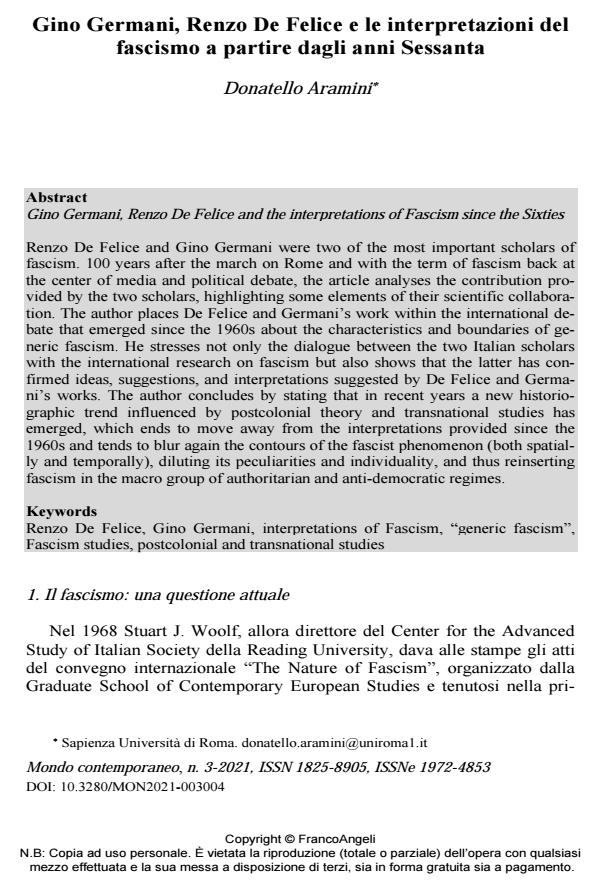Gino Germani, Renzo De Felice and the interpretations of Fascism since the Sixties
Journal title MONDO CONTEMPORANEO
Author/s Donatello Aramini
Publishing Year 2022 Issue 2021/3
Language Italian Pages 35 P. 79-113 File size 317 KB
DOI 10.3280/MON2021-003004
DOI is like a bar code for intellectual property: to have more infomation
click here
Below, you can see the article first page
If you want to buy this article in PDF format, you can do it, following the instructions to buy download credits

FrancoAngeli is member of Publishers International Linking Association, Inc (PILA), a not-for-profit association which run the CrossRef service enabling links to and from online scholarly content.
Renzo De Felice and Gino Germani were two of the most important scholars of fascism. 100 years after the march on Rome and with the term of fascism back at the center of media and political debate, the article analyses the contribution pro-vided by the two scholars, highlighting some elements of their scientific collaboration. The author places De Felice and Germani’s work within the international debate that emerged since the 1960s about the characteristics and boundaries of generic fascism. He stresses not only the dialogue between the two Italian scholars with the international research on fascism but also shows that the latter has con-firmed ideas, suggestions, and interpretations suggested by De Felice and Germani’s works. The author concludes by stating that in recent years a new historio-graphic trend influenced by postcolonial theory and transnational studies has emerged, which ends to move away from the interpretations provided since the 1960s and tends to blur again the contours of the fascist phenomenon (both spatially and temporally), diluting its peculiarities and individuality, and thus reinserting fascism in the macro group of authoritarian and anti-democratic regimes.
Keywords: Renzo De Felice, Gino Germani, interpretations of Fascism, "generic fascism", Fascism studies, postcolonial and transnational studies
Donatello Aramini, Gino Germani, Renzo De Felice e le interpretazioni del fascismo a partire dagli anni Sessanta in "MONDO CONTEMPORANEO" 3/2021, pp 79-113, DOI: 10.3280/MON2021-003004